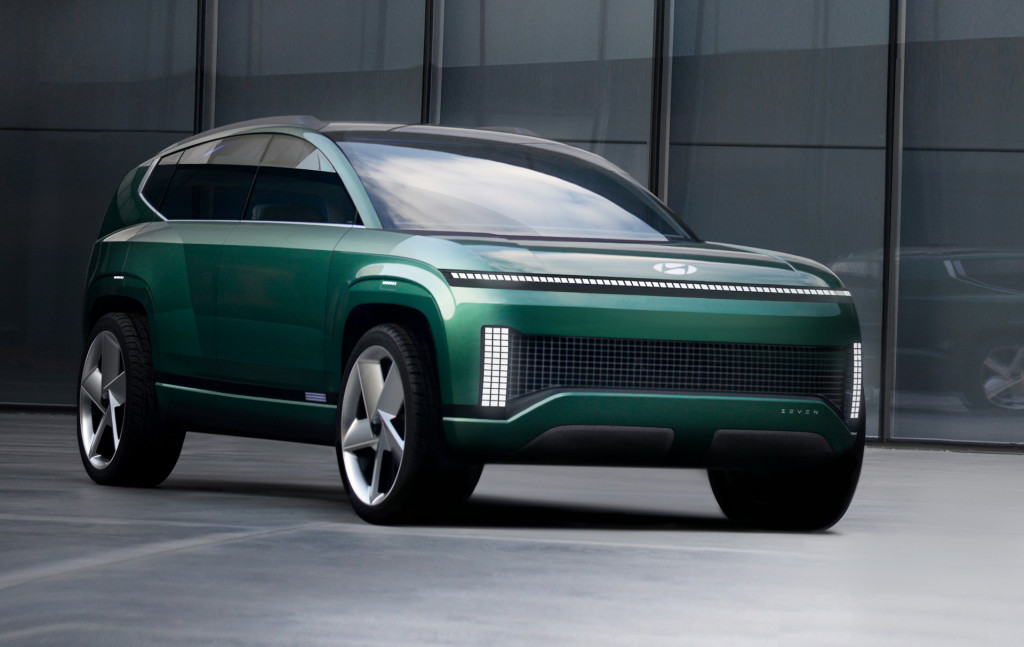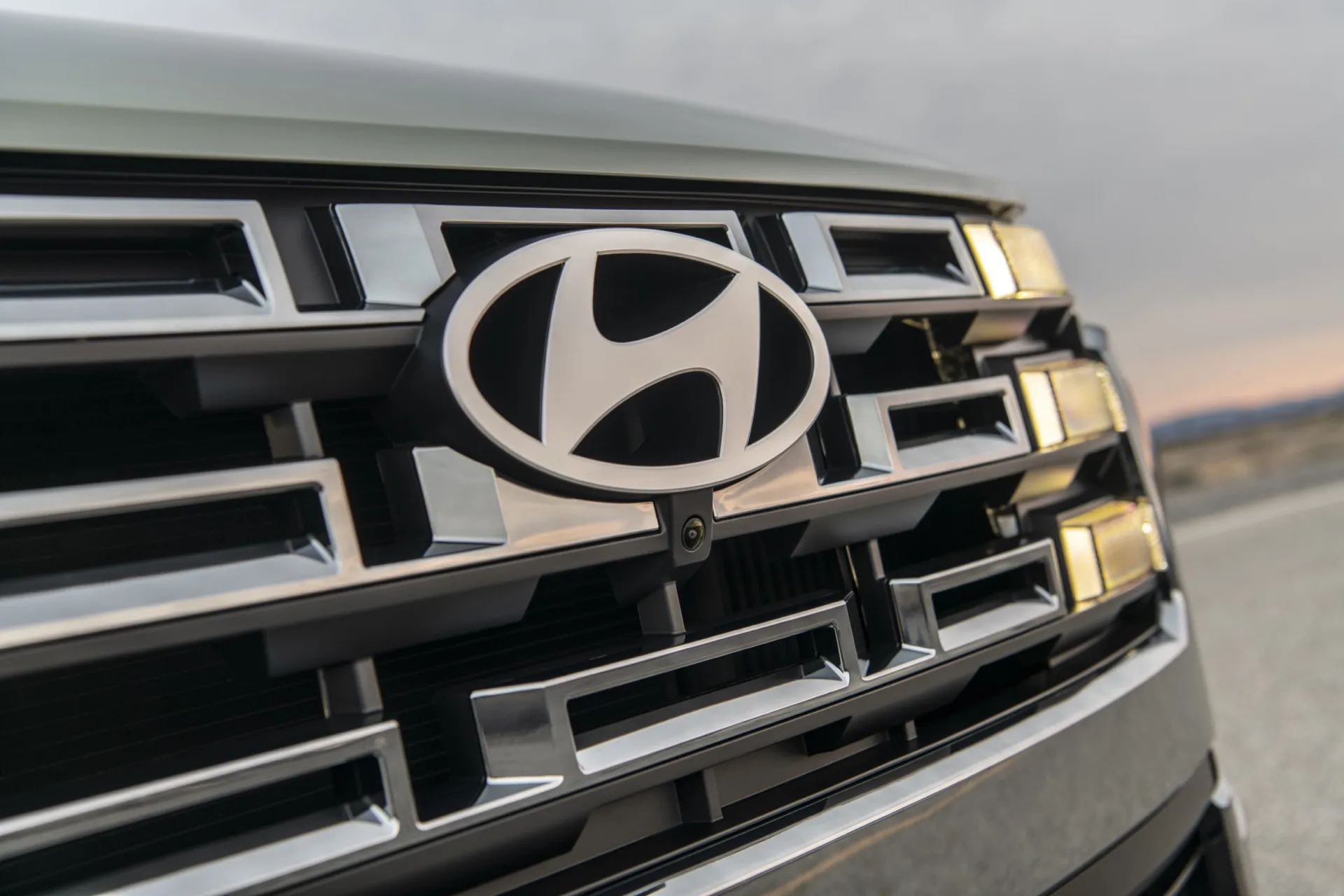Hyundai will launch plug-in hybrid SUVs as a “bridge to electrification” in 2026, but still plans to launch 21 EVs globally by 2030.
Announced during the automaker’s 2024 CEO Investor Day presentation Wednesday, a new plug-in hybrid powertrain will use two electric motors to enable all-wheel drive, with a combustion engine acting primarily as a generator. This is similar to the defunct Chevrolet Volt, and distinct from the plug-in hybrids Hyundai has offered in the past.
Hyundai claims a combined range of up to 559 miles on both gasoline and electricity, with an “EV-like driving experience” the automaker claims will encourage customers to give all-electric models a try in the future.
2025 Genesis GV80
The powertrain will first appear in SUVs for both Hyundai and the Genesis luxury brand. The automaker is targeting annual North American sales of 80,000 units across both brands. Hyundai plans to start production by the end of 2026, with sales starting in 2027.
The Genesis plug-in hybrid SUV may be just one of multiple hybrids augmenting what was to be an all-EV lineup. Genesis in 2021 laid out plans to sell only EVs or fuel-cell vehicles by 2030, but recently reversed course, citing customer demand. A report from The Korea Economic Daily earlier this year said Genesis was developing a hybrid powertrain based around a 2.5-liter engine, likely for use in the G80 sedan and GV70 SUV.
Hyundai is also planning updates to its existing hybrid system to improve fuel economy and performance—while targeting increased sales. The automaker aims to sell 1.3 million hybrids globally by 2028, and 690,000 in North America alone by 2030. The automaker is also expected to add production of hybrids alongside EVs at its new Georgia Metaplant scheduled to open later this year.

Hyundai Seven concept
EVs remain a priority for Hyundai, though. The automaker said it is researching new battery tech, including a new chemistry that it plans to introduce in 2030 alongside current nickel-manganese-cobalt (NMC) and lithium-iron-phosphate (LFP) and cell-to-vehicle packaging that would see battery cells integrated directly with a vehicle’s body shell—going a step beyond even the cell-to-pack designs being touted by the likes of Chinese battery supplier CATL.
Hyundai is targeting 2 million global EV sales by 2030. Among the new models already slated for production is a three-row SUV debuting later this year—the Hyundai Ioniq 9, based on the Hyundai Seven concept first shown in 2021—as well as additional performance models in the vein of the Hyundai Ioniq 5 N.
